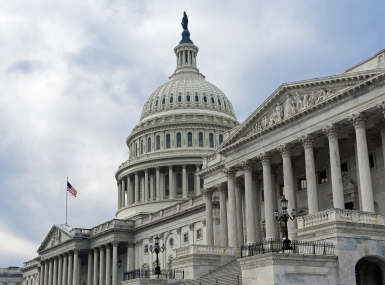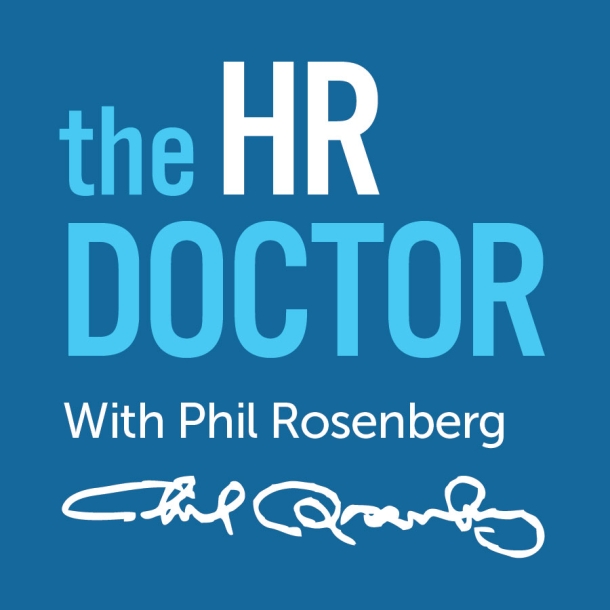The H.R. Doctor is In - Feb. 8, 2016
Cancer the Terrorist
Terrorist is among our very most frequently used words these days.
The word evokes characteristics we dread very much. The terrorist strikes unexpectedly and without warning. The terrorist can do horrific damage, including causing the death of innocents and the infliction of Post-Traumatic Stress Disorder. It can shake the foundation of our physical and psychological well-being.
As a former intelligence officer, the HR Doctor, has spoken and written on security matters as they affect modern human resources management. I know that many things can be done to identify and control the risks we face from the terrorist. We can review our own security status, perhaps change our behaviors to make us less likely targets, seek the protection of other people, including our neighbors and experts in both the public and the private sector.
One of the most important things we can do at the individual level is to resolve not to allow the scourge of terrorism to destroy our well being just by frightening us so much. We do not have to become paralyzed and assume that nothing can be done to stop this evil.
Terrorist attacks have killed thousands in the U.S. and many more in other countries. They have changed history, including being the catalyst event in the beginning of World War I. Despite how terrible the “disease” of terrorism is, there’s another terror which shares many of the characteristics of the kind of murderous philosophies and perverse behaviors of those who support the Islamic State.
This other terrorist is cancer. It is a horror that kills millions of people around the world each year. It is a terror we are learning more about each day and have improved tremendously in our ability to overcome it, notwithstanding the fact that much more remains to be done.
Cancer the terrorist can strike without warning. It can make its presence known initially in a small way, with a skin lesion or a breast lump. It can result in a traumatic visit to the doctor, hearing her or him pronounce the terrible “c-word.” That word can lead to very difficult treatments, such as chemotherapy and radiation. It can have a sudden and profound impact on how we live our lives and manage our families and careers.
Yet, like the terrorists of the headlines who often claim political or radical religious roots to justify their horrors, the cancer terrorist can be attacked by education and by creating an army of supporters. These include physicians, medical institutions, friends and family.
Cancer can also be dealt with aggressively by how we think and respond mentally to a crisis. We can treat more than the physical ailment. We can take steps to ensure that we keep a clear and confident mental attitude and not give up things we love out of fear and sadness. We can meditate and practice the imagery that tells us that “…even though the terrorist has struck at me, I know that I can track it down, defend myself with all the weapons available to me, and I can triumph!” We can echo the Gloria Gaynor song “I will survive!”
We attribute the word “survivor” to someone who has succeeded in keeping cancer at bay, generally through a milestone like five years of treatment. We may celebrate hearing our physicians say words like “remission” to us. However, “survivor” tends to be thought of as a passive word. That is, we have beaten back the cancer terrorist and we can resume how life used to be.
The HR Doctor would urge readers of this article to appreciate that surviving something takes courage and action which should continue well after the first words about remission are heard. The close allies of cancer include smoking, obesity, being sedentary to the point of seeming to be unconscious. Not learning about risks, not developing a close relationship with a great and caring physician are also allies of the terrorist. All of these things are within our control and all of these things reduce the risks of falling prey to this form of terrorism. The concepts of protection employed by the Secret Service have very direct similarities to the protections we need to establish in our own daily lives. Follow the concepts outlined in this article and reduce the risks we face in our own personal “Departments of Homeland Security.” Look forward to that periodic medical exam as a time to see the results of putting your protective measures to work. Don’t let “Cancer the Terrorist” defeat you physically or in spirit.
Attachments
Related News

Congress introduces Second Chance Act reauthorization
On April 16, the Second Chance Reauthorization Act of 2024 (H.R. 8028) was introduced in the U.S. House of Representatives with robust bipartisan support. NACo supports this legislation, which would reauthorize funding for Second Chance Act (P.L. 110-199) programs for five years.

Congressional leaders introduce new legislation for a national data privacy framework
On April 7, U.S. House Energy and Commerce Committee Chair Cathy McMorris Rodgers (R-Wash.) and U.S. Senate Commerce, Science and Transportation Committee Chair Maria Cantwell (D-Wash.) introduced the American Privacy Rights Act.

U.S. Department of Energy announces $18 million for Local Government Energy Program
U.S. Department of Energy announces $18 million for Local Government Energy Program
